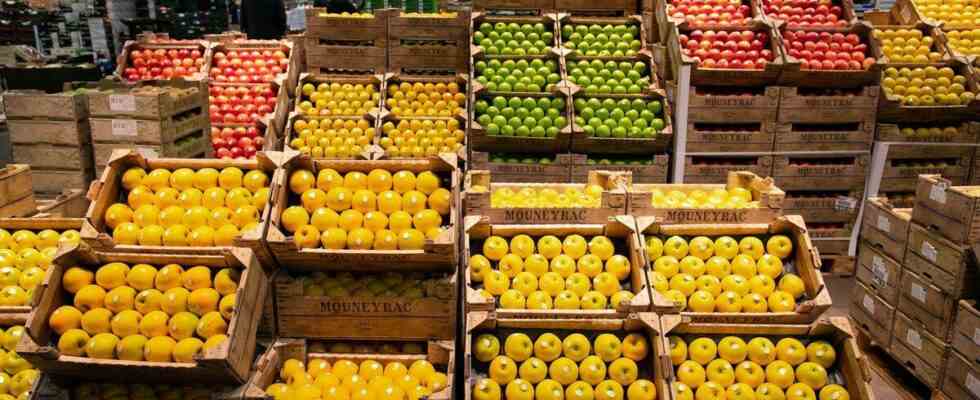When eating their five fruits and vegetables a day, Europeans will have to be careful. Residues of chemical pesticides on fruit grown in the European Union have indeed increased between 2011 and 2019, according to a study by the NGO PAN Europe published on Tuesday.
The study, based on the analysis of some 97,000 samples of fresh fruit (peaches, strawberries, cherries, apples, etc.), affirms that almost one in three samples (29%) was contaminated with traces of chemical pesticides. compared to 18% in 2011.
Brussels still far from its objectives
However, since 2011, Member States are supposed to encourage substitute products to limit as much as possible the use of these synthetic pesticides – herbicides, fungicides, insecticides – considered to be the most risky and whose authorization is more strictly regulated in the EU. EU. At the national level, this authorization must in particular be the subject of a comparative assessment with substitute products.
Above all, the results of the study cast a shadow over Brussels’ ambition, set in 2020, to halve the use of these most dangerous pesticides by 2030. “If there are no strong measures, we do not see how this objective could be respected”, explains Salomé Roynel, of PAN Europe, who recalls that the Commission has the power to call countries to order. failures on this subject”. The NGO cites among the authorized products whose use should absolutely be limited, Tebuconazole, a fungicide toxic for reproduction, traces of which were frequently found on cherries produced in 2019, in Spain among others.
Intended to destroy living organisms considered harmful, pesticides are likely to have effects on human health, by increasing the risk of fertility problems or even triggering certain diseases (Parkinson, cancer).
In 2021, an expert report from the French Institute for Health and Medical Research (Inserm) thus concluded that “a strong presumption of a link between exposure to pesticides in the mother during pregnancy or in the child and the risk of certain cancers (leukemia, tumors of the central nervous system)”.
Less contaminated vegetables
In its study, PAN (Pesticide Action Network) ensures that half of the cherry samples were contaminated with traces of pesticides in 2019 (against 22% in 2011), more than a third (34% against 16%) for those of apples, the most produced fruit on the continent. The most contaminated fruits are blackberries (51% of the samples), peaches (45%), strawberries (38%), cherries (35%) and apricots (35%), over the nine years studied, adds long.
For vegetables, contamination is lower because they are less prone to insects and diseases: 13% of samples were concerned in 2019 (11% in 2011), the vegetables most concerned being celery, celeriac and kale (31%).

